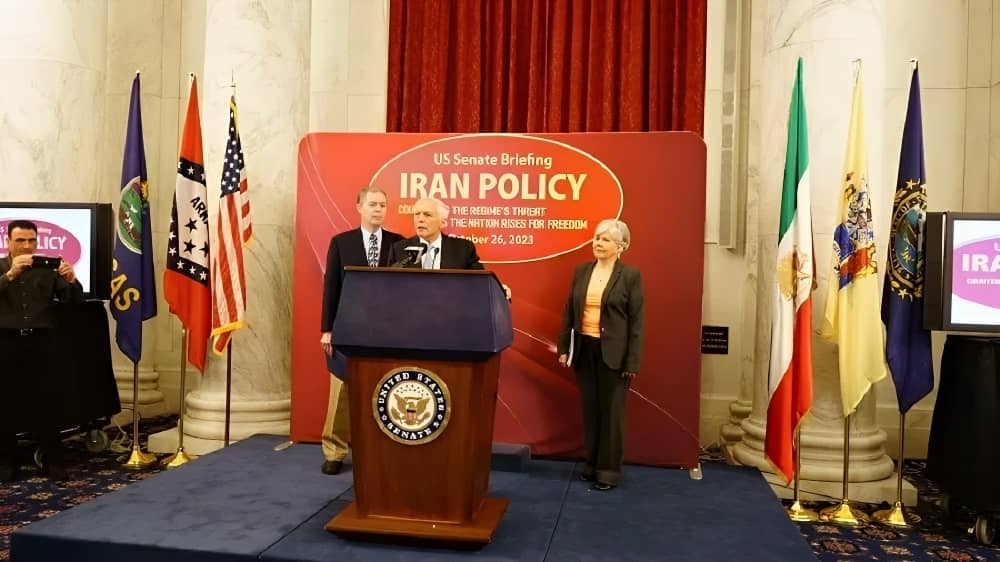

The general castigated Iran’s leadership for its ongoing support of terrorism and the promotion of regional instability. Clark, who has been a figure of military renown, questioned the legitimacy of Tehran’s rule. “For over 40 years, the people of Iran have suffered brutal repression as the clerics in Tehran have had their way,” Clark stated, highlighting a history marred by “corruption, oppression, and murder.”
During his speech, Clark addressed the apparent responsibilities of the Iranian regime in inflaming conflicts across the Middle East, from Syria and Iraq to Lebanon and Israel. “Behind all of this is the evil hand of the Ayatollahs in Iran, the Quds Force. They’re the source of manipulation, terror, war, instability, fear, and inhumanity,” he declared.
General Clark also called into question doctrines opposing significant change in Tehran and openly supported the idea of a regime change. He rallied for the international community to back the Iranian people in establishing a government of their choice, pinpointing the National Council of Resistance of Iran (NCRI) as a viable alternative.
“This is the time for regime change in Iran. It’s as simple as that,” General Clark urged, recognizing the necessity of an alternative to the current status quo. His speech emphasized the influence of Iran’s leadership in fostering global terror and expressed solidarity with the aspirations of the Iranian populace for democracy and self-rule.
The General’s critique extended to Iran’s alleged involvement in the recent conflicts, including the terrorist attacks on Israel on October 7th and subsequent attacks on U.S. forces in Iraq and Syria. “Enough is enough,” he asserted, signalling a call to action.
General Clark’s address reached beyond immediate policy implications, questioning the moral standing of a regime that seeks the destruction of a neighboring state and suggesting that the leadership in Tehran should not be afforded international legitimacy.
In a poignant conclusion, Clark emphasized the urgency of reevaluating Iran’s governmental legitimacy and called for concerted global efforts to support a transition. “Let’s take away their legitimacy. Then the people of Iran will get the government that they seek and deserve,” he concluded, suggesting a path forward built on global recognition and support for change from within Iran.
Behind all of this, is the evil hand of the Ayatollahs in Iran… They're the source of manipulation, terror, and war.
(General Wesley Clark) pic.twitter.com/AeSCD7XLJ6
— OIAC: Organization of Iranian American Communities (@OrgIAC) November 1, 2023
As the full text of General Clark’s speech circulates, his words continue to resonate, potentially influencing policy and international perspectives on Iran.

MEK Iran (follow us on Twitter and Facebook), Maryam Rajavi’s on her site, Twitter & Facebook, NCRI (Twitter & Facebook), and People’s Mojahedin Organization of Iran – MEK IRAN – YouTu







